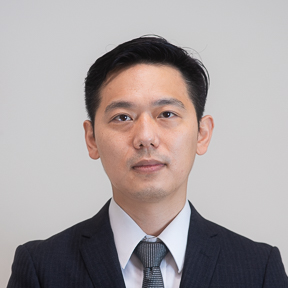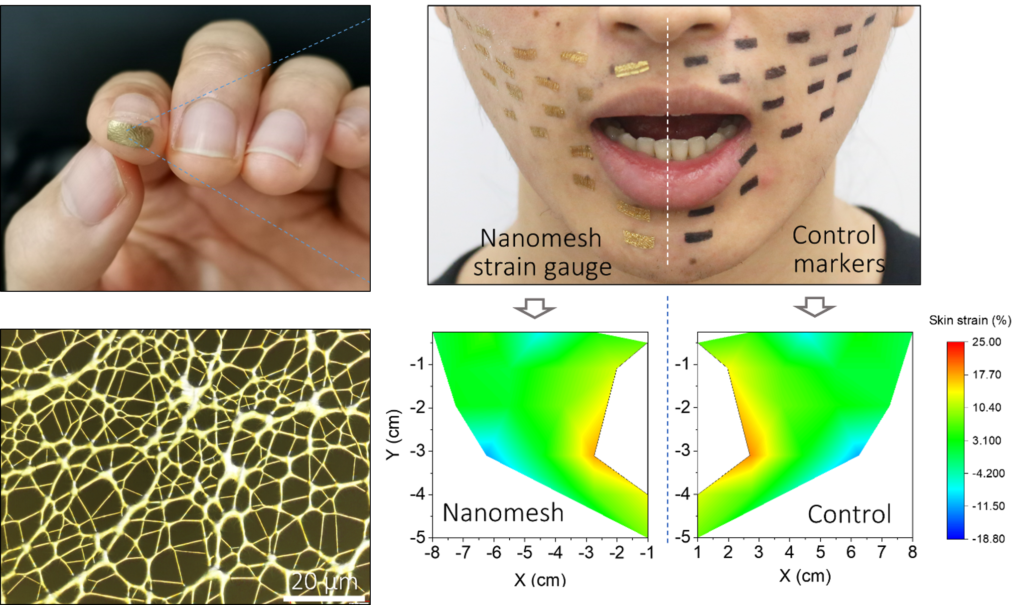
LEE Sunghoon Lecturer
Hongo Campus
Graduate Schoolー
Departmentー
Nano Physics & Device Technology Field
Biomedical engineering/Biomaterial science and engineering
Electronic materials/Electric materials
Electron device/Electronic equipment
Soft/flexible devices for medical applications
We engage in research on flexible devices for application to living body, taking advantage of qualities unique to organic materials. We have proposed pressure sensors that do not interfere with skin sensation, breathable electrodes that do not cause skin irritations, and nanomesh sensors with cellular level softness for next-generation biointerfaces with high biological conformity.
Research field 1
On-skin pressure sensors without sensory interferences

Accurately measuring and digitizing finger movements is important in various fields, such as healthcare, nursing, sports, and human-machine interfaces. However, it has been a challenge to attach sensors without affecting the wearer's sense of touch. Thinning the material to avoid impairing skin sensation makes the sensor more fragile, making durability an even greater challenge. In our laboratory, we have developed a nanomesh pressure sensor that can be directly attached to the fingertips without affecting skin sensation. We quantitatively evaluated the impact of wearing the sensor on skin sensation and scientifically demonstrated that the nanomesh sensor, when attached to the fingertips, shows equivalent gripping force to that of not wearing it. Additionally, by using a very thin polyurethane nanomesh protective layer impregnated with a water-soluble polymer, we have dramatically improved the mechanical durability of the sensor. Unlike conventional rubber glove-type pressure sensors, our technology can accurately measure delicate fingertip contact pressure without impairing finger sensation. Therefore, it is expected to have various applications in the digital archiving of finger techniques of doctors and craftsmen, among others.
Research field 2
Strain sensors with both high durability and ultra-softness

For biological objects that are soft and constantly moving, it is important to realize sensors utilizing soft and/or stretchable materials. Furthermore, to measure the subtle changes in the skin, such as facial expressions, an ultra-flexible sensor that can easily deform even with very weak forces generated by the slight stretching of the skin is required. In our laboratory, we have succeeded in developing a strain sensor that simultaneously achieves ultra-flexibility and high durability. It can accurately measure fine distortions on the face at multiple points without inhibiting the skin's natural movement. This was achieved by reinforcing several layers of polyurethane nanofibers formed using electrospinning with a very thin layer of polydimethylsiloxane (PDMS) to maintain flexibility and mechanical durability against facial distortions. In the future, we envision that this technology will be applied to wearable devices that can read facial expressions, such as joy, anger, and sadness.